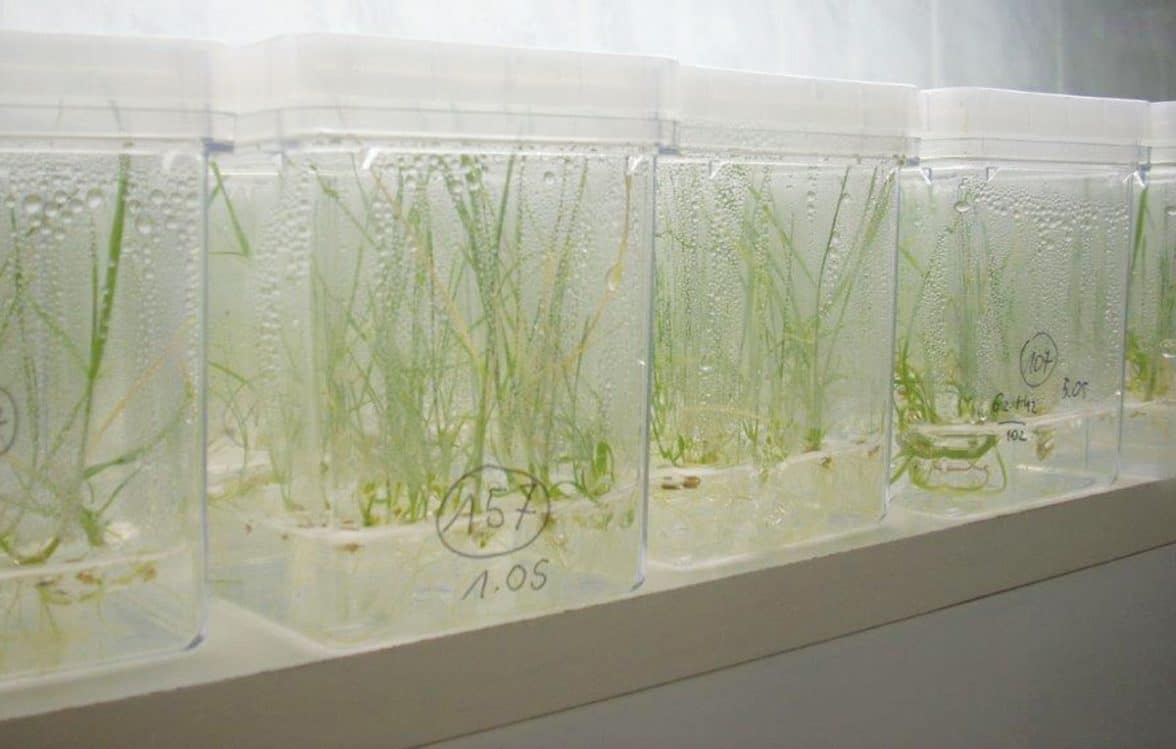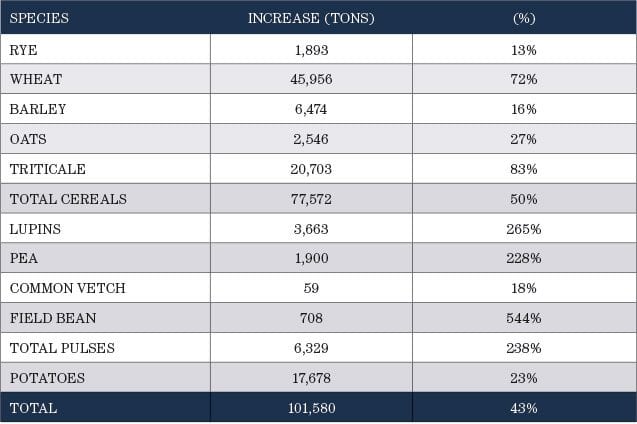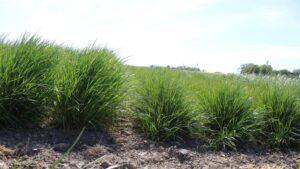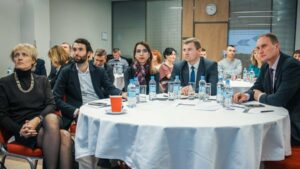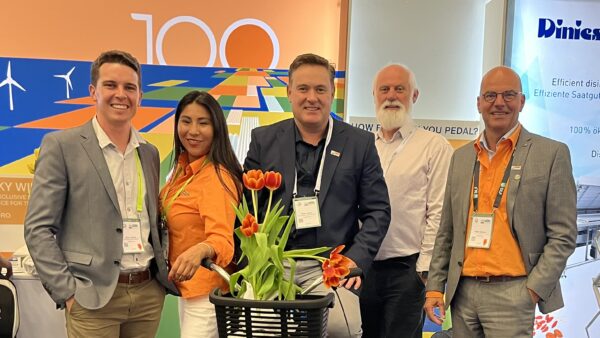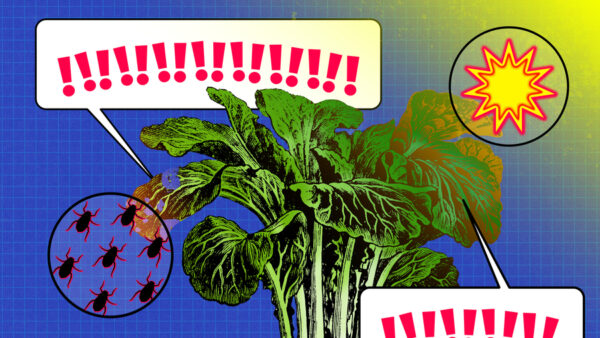The Polish Seed Trade Association has been promoting the interests of the Polish seed industry for nearly a century — and it’s still going strong.
T he Polish seed industry has a long tradition of being associated with an umbrella organisation. The first organisation, named the Polish Association of Breeders and Seed Merchants (Związek Polskich Hodowców i Kupców Nasiennych), was established in 1919 and was active until 1950.
Due to political conditions, there was no seed association active again in Poland until 1996, when the current Polska Izba Nasienna/Polish Seed Trade Association (PIN) was established. The first person active in the organisation of the seed market, and the first president of PIN — Karol Duczmal — was widely known within the international community.
PIN’s organisational structure is relatively straightforward, with a General Assembly, a board of directors and several committees and sections, while PIN’s secretariat is run by its secretary-general. PIN has established three technical committees focused on related issues:
- Plant Breeders Committee;
- Seed Companies Committee; and
- Research and Development Committee.
Besides the committees there are several crop-focused sections:
- Beet Section;
- Maize Section;
- Oil and Fiber Plants Section;
- Vegetables and Ornamentals Section;
- Cereals and Pulses Section;
- Grasses and Legumes Section;
- Potato Section; and
- Trees and Shrubs Section.
The association brings together national and foreign companies that are active in breeding, reproduction and the seed trade. PIN has 78 members, and being a member is voluntary. PIN is a member of the International Seed Federation (ISF) and the European Seed Association (ESA).
Aim and Tasks
The aim of PIN is to create the best conditions for the development of the seed industry, thus offering farmers a steady supply of high-quality seed of the newest varieties, and to represent the interests of its members. The main tasks of PIN can be classified as follows:
- To modify laws in the way most favourable for seed quality, varietal identity and for seed suppliers (at the national, EU and international levels).
- To create opportunities for business and cooperation in the marketplace (support schemes for seed production, market information, seed congresses).
- Ongoing cooperation with the Ministry of Agriculture, State Plant Health and Seed Inspection Service, Research Centre for Cultivar Testing, and other relevant bodies,
- To increase awareness of the benefits coming from the use of high-quality seed (farmers, public, scientists, politicians and governmental representatives).
- To secure the flow of research and innovation into plant breeding.
However, there are also challenges. The main challenge at the moment is to increase the efficiency of plant production through the use of certified seed in Poland.
To address these challenges, PIN is working on many different levels. The most important issues for PIN at the moment are:
- Ongoing changes in the national seed law.
- Enforcement of Plant Breeders’ Rights and collecting farm-saved seed fees.
- The shape of future EU seed legislation.
- Access to plant genetic resources.
- Access to Plant Protection Products (PPPs), especially to seed treatment products.
- Communication strategy for the association.
NEW EFFORTS
These days, PIN’s biggest efforts are concentrated on two new activities. Towards the end of 2014, upon the agreement with ESA, PIN has become the national agent responsible for implementing the European Seed Treatment Assurance scheme (ESTA) in Poland. PIN has organised its first meetings with certifying bodies that are interested in carrying out ESTA audits on-site.
The intention is to have the first on-site audits done before the autumn sowing season in 2015. The crucial goal is to have a good communication campaign for the ESTA, focused on seed companies, farmers and government representatives, which has just now started. Another new project is a training centre. The first people for whom training will be provided will be accredited seed sample takers and field inspectors. Until now, the only training in this area was provided by the State Plant Health and Seed Inspection Services (PIORiN). PIN is now authorised to provide this training as well, and we have trained the first four groups of seed sample takers in March and April 2015. At the moment, we are planning to run a second round of training for field inspectors.
Many Successes
PIN has logged many successes. PIN’s proudest achievements include:
- PIN initiated and prepared the introduction of the legislation on PBR (law on the legal protection of varieties, 2003).
- The introduction of subsidies for certified seed under the EU de minimis regime from 2007.
- The possibility of supporting financial investments for seed companies in RDP 2007-2013 up to 50 per cent.
- Subsidies for the cultivation of legumes € 60/ha.
- Restoration of the authorization of seed treatment products for vegetables.
- Extension of the authorization of PPPs for sorghum (maxim).
- Ensuring fair access to Polish white mustard varieties on the EU market.
- Establishment of the Fundamental Research Program for plant breeding.
- Establishing a research project for pulses.
- Poland’s introduction to ISF and ESA.
- EESNET Congress organization: Poznan 2004 and Krakow 2009.
- ESA Annual Meeting and Seed Congress, Warsaw 2013.
- Co-organizing of the ISF WSC, Krakow 2015.
Events
Recently the ESA Annual Meeting was organised in Warsaw and in May 2015, ISF will hold its World Seed Congress in Krakow. By bringing these events to Poland, PIN wants to focus the attention of the Polish seed industry on the international seed sector. In previous years there were only a few Polish companies attending the ISF and ESA congresses. Since the ESA Annual Meeting in Warsaw, PIN has noticed a significant increase in the number of participants from Poland in both events. PIN expects to see a record number of Polish companies attending the ISF Word Seed Congress in Kraków.
Farm-Saved Seed in Poland
By: Agencja Nasienna Sp. Z o. o.
The Polish system for the collection of farm-saved seed (FSS) remuneration has been operating successfully since the amendment of the national law entered into force. Before 2006, for the varieties protected on the national level, it was possible only in theory. The above-mentioned system is managed by Agencja Nasienna Sp. z o.o., a breeders’ organization founded in September 2003 by seven Polish breeders.
Currently, the organisation is directly representing 24 plant breeding companies, including also those associated with foreign breeding organisations. Through establishing AN Plus Sp. z o.o., a new organization being the member of Agnecja Nasienna and associating some foreign breeders, further significant improvement of the system is expected. AN Plus has the task of mediating between Agencja Nasienna and those breeders who do not act directly within the territory of Poland, even though their varieties are commercialized and used as FSS there.
One of the major challenges is enforcement. Year by year there is a progess, but enforcement costs are very high. This results from the need of sending to farmers, after each season, formal requests for information and carrying out numerous inspections. Recently, about 500 successful court cases have been conducted every year. The greatest obstacle in this area is the lack of information about “active” agricultural holdings that are not small farmers.
During the last several years, a lot changed regarding possession of agricultural land and size of farms. Generally, small farmers are getting bigger, but on the other hand some middle and big farms change in their structure and become smaller holdings to benefit more from EU Common Agriculture Policy. The effectiveness of the collection of FSS remuneration could be improved significantly by getting some data from official administrative bodies, especially updated information on farm addresses and farm area. However, stronger political support is required.
It’s not only farmers, but all of society that benefits from innovations represented by certified seed of new plant varieties. We see great possibilities in delivering this message to all stakeholders. As a consequence of this, we also communicate that FSS remunerations and contractual licenses constitute the primary financial source to cover the cost of R&D. Despite common understanding and acceptance of this idea, there is not enough practical support for a better working system of collection in Poland.
Poland also needs more participation from both the industry and the official bodies when it comes to action taken against the illegal seed market (brown bagging), which is extremely hard to control.
Despite all these difficulties, we have recently achieved a lot of progress in the area of IP enforcement in Poland. The most important is the well-established license agreement system; a good start in the development of an FSS remuneration system; and informational and educational activities. As a result, public knowledge of IP is much better now.
Increase in certified seed sales from 2007/2008 (introduction of de minimis on area sown with certfied seed) to 2013/2014


